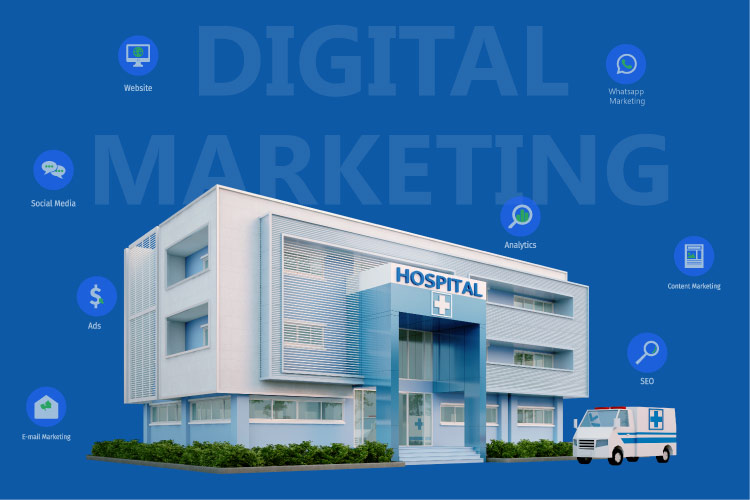
Digital Marketing for Hospitals: Strategies That Drive Results and Revenue
February 4, 2025Book A Free Demo
Latest Marketing Articles
Book A Free Demo
Studies suggest that 81% of patients research online about a provider even after being referred.
For psychiatrists, embracing digital marketing isn’t optional—it’s the future of connecting with patients who need their expertise. In an age when mental health is finally receiving the attention it deserves, your online presence can make the difference between a patient choosing care or staying silent.
Unlike general healthcare, digital marketing for psychiatrists requires a thoughtful, empathetic approach. Patients seeking mental health care often navigate sensitive and personal issues, making it essential for practices to emphasize privacy, trust, and accessibility. A strong online presence helps bridge the gap between patient concerns and your expertise, making it easier for people to reach out when they need support.
Your clinic’s virtual front desk is your website and should be designed with patients in mind. A successful website for a psychiatry clinic includes:
For example, a blog or FAQ section answering questions such as “What is telepsychiatry?” or “When should I see a psychiatrist?” can position your clinic as a trusted resource while improving SEO.
Local SEO is crucial for ensuring that potential patients find your practice online. Optimizing for local search can boost your visibility in results for healthcare queries like “psychiatrists near me.”
Steps to improve local SEO include:
A strong digital marketing strategy for psychiatry clinics ensures that you appear at the top of local search results, driving footfall and increasing trust among patients.
Social media platforms such as Instagram, Facebook, and LinkedIn can help humanize your hospital or clinic and connect with patients. Consider these tactics:
Social media is a cost-effective way to break the stigma around mental health while establishing your psychiatry practice as approachable and trustworthy.
Blogging is a cornerstone of digital marketing for psychiatry practices. Informative and engaging articles help patients understand their mental health concerns and improve your online visibility.
Topics such as “How to Recognize Signs of Depression” or “The Benefits of Telepsychiatry” can drive traffic to your website. Incorporating keywords like practice growth, psychiatry clinics, and mental health services supports SEO while positioning your clinic as an authority in the field.
Paid ads can amplify your reach, bringing your psychiatry practice to the attention of patients actively searching for care. Google Ads and social media ads allow you to target specific demographics, such as individuals searching for “online therapy” or “mental health services near me.”
Running targeted campaigns offering free consultations or webinars on mental health topics can encourage more patients to engage with your clinic.
Reviews are a critical part of digital marketing for psychiatrists. Research shows that most patients trust online reviews as much as personal recommendations.
To build credibility:
Reviews build trust and boost your medical practice’s SEO rankings, making it easier for new patients to find your hospital or clinic.
No digital marketing strategy for psychiatry clinics is complete without tracking its success. Tools like Google Analytics provide insights into website traffic, patient engagement, and campaign performance. Regularly reviewing this data can help you refine your approach and ensure that your efforts align with your practice growth goals.
Effectively leveraging digital marketing for psychiatry clinics is essential for reaching and helping more patients. By optimizing your website, leveraging local SEO, creating engaging content, and fostering trust through patient reviews, you can ensure your clinic or hospital thrives in a competitive digital landscape.
Start implementing these strategies today to grow your medical practice and make mental health care more accessible to those who need it most!


